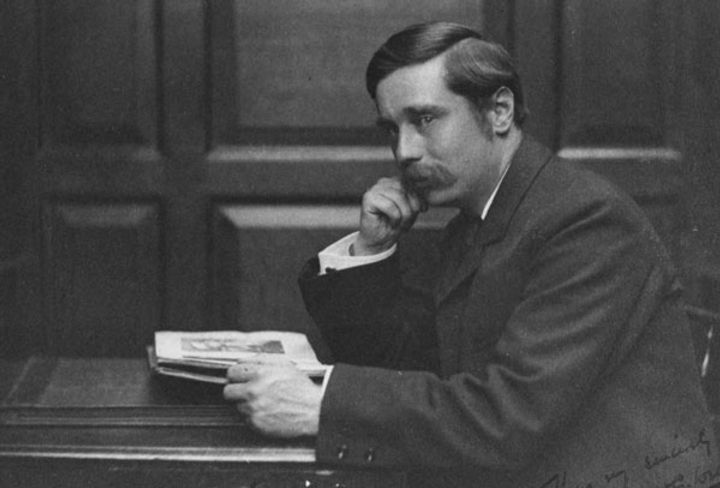Fall 2007
A Solid B+ for Perfection
Novelist H. G. Wells offered visions of the future in a number of books. His predictions weren't flawless, but they often hit close to the mark.
If H. G. Wells were in a Jeopardy category, it would almost certainly be science fiction. But at the turn of the last century, Wells (1866–1946) was regarded as one of the leading intellectuals of the West, with an influence that was felt in science, biology, history, and education. In widely popular books, he predicted an astonishing number of the seminal events of the 20th century, from the splitting of the atom to the creation of limited-access freeways, from guerilla warfare to the rise of the Boston-Washington megalopolis.
About 80 percent of the dozens of predictions in Wells’s 1901 book, Anticipations, were at least partly right and 60 percent were “extremely accurate,” writes Paul Crabtree, a retired federal analyst. Wells foresaw dramatic increases in the speed of travel, with most people transported in independent road vehicles and only heavy freight moving by rail. He recognized the future of the airplane, but relegated it to a footnote. He expected the size of cities to expand exponentially until the New York metropolitan area encompassed 40 million people—it has 19 million residents today. He thought the “irresponsible” wealthy class would grow, as would a poor, uneducable underclass whom technology would render unemployable. He predicted the decline of marriage and an increase in childless unions. Machines and technology would become the primary means of waging war, he wrote; military victories would be won “in the schools and colleges and universities.” He foresaw English—“but perhaps French”—becoming the dominant world language. He recognized the globalization that is a hallmark of the world economy a century hence.
In later books, Wells forecast the use of atomic energy and the dropping of nuclear weapons from airplanes. In 1933, he wrote a novel that was only a few months off in predicting the date of the outbreak of World War II, according to Crabtree.
But as prescient as Wells was about technological change, he was clueless about religion and women. He failed to recognize the possibility of the rise of world faiths beyond a version of Unitarian Protestantism, which he expected to dominate. It apparently never occurred to him that women might go to work in numbers nearly equal to men.
* * *
The Source: "Anticipations: The Remarkable Forecasts of H. G. Wells", by Paul Crabtree, in The Futurist, September-October 2007.
Photo courtesy of Wikimedia Commons
